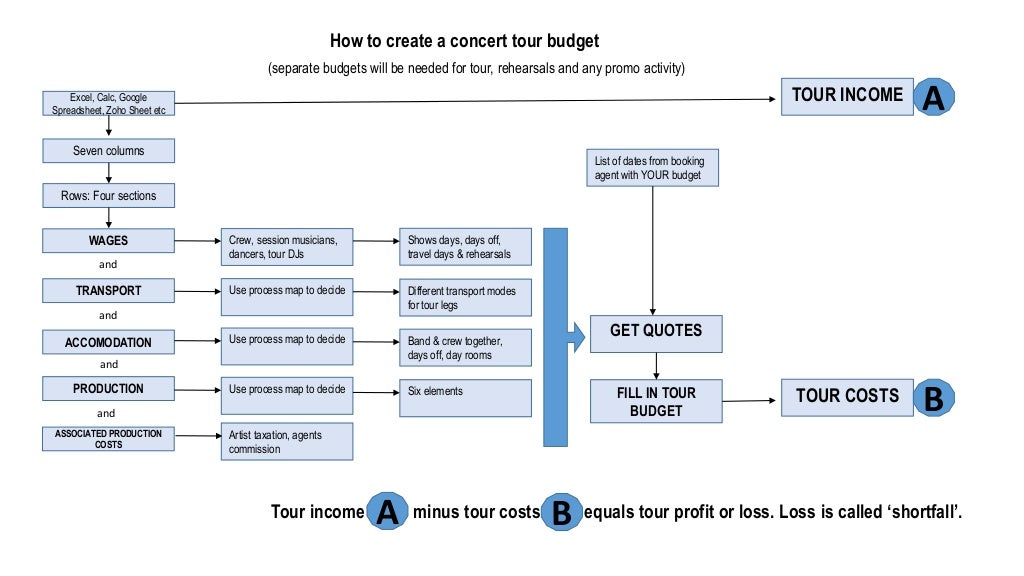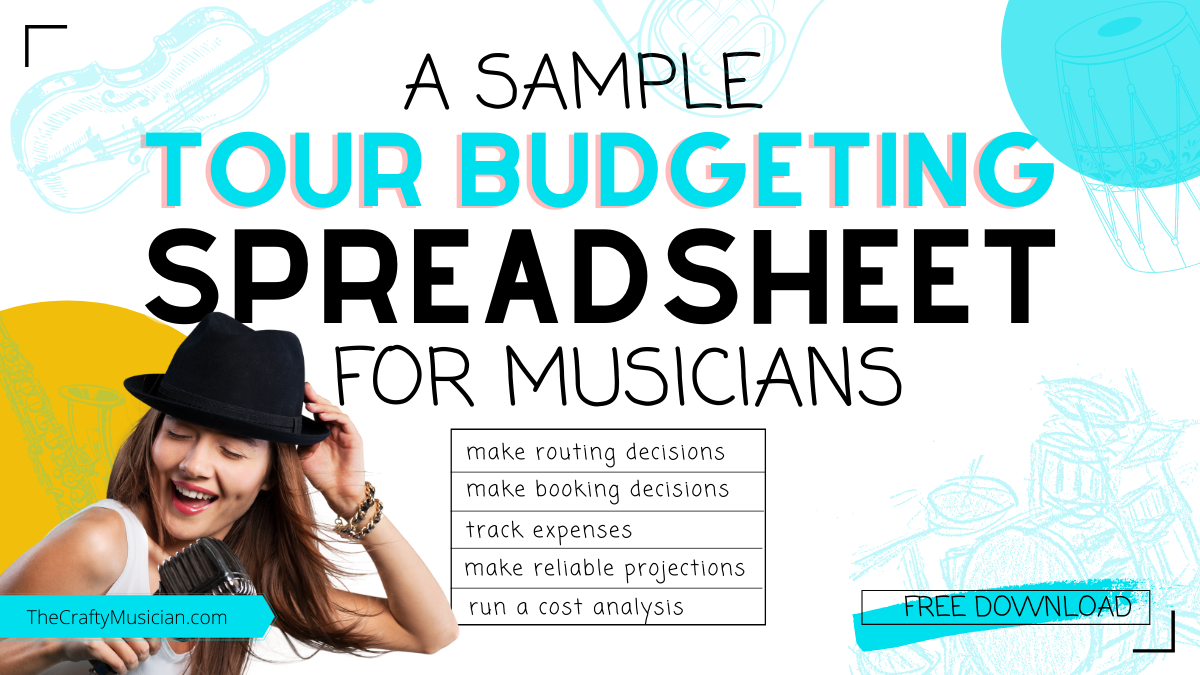Reference




OpenAI's Answer
Tour managers create a budget for a concert tour by following a systematic process that involves several key steps. Here’s how they typically approach it:
-
Estimate Income: Tour managers begin by estimating potential income sources, such as ticket sales, merchandise sales, sponsorship deals, and any other revenue streams. This helps establish a baseline for what can be spent.
-
Identify Expenses: They then compile a comprehensive list of all anticipated expenses, which may include:
- Travel Costs: Transportation for crew, equipment, and the artist.
- Accommodation: Hotel or lodging expenses for the duration of the tour.
- Food and Per Diem: Daily allowances for meals and incidentals.
- Venue Costs: Rental fees for concert locations, including utilities and staff.
- Production Costs: Expenses related to sound and lighting equipment, staging, and backline gear.
- Marketing and Promotion: Costs for advertising, promotional materials, and public relations efforts.
- Insurance: Coverage for equipment, liability, and cancellations.
-
Create a Detailed Budget: Using this information, tour managers create a detailed budget that aligns expenses with projected income. This budget serves as a financial roadmap throughout the tour.
-
Track and Manage Finances: Throughout the tour, managers must continuously track spending against the budget, making adjustments as necessary to stay on track. This may involve monitoring ongoing expenses and adjusting future spending based on real-time data.
-
Evaluate Results: After the tour, a thorough evaluation is conducted to assess financial performance against the original budget. This analysis helps in improving budgeting processes for future tours.
For more detailed insights, resources like Tour Manager Info provide extensive guidance on budgeting for tours. Additionally, templates can assist in organizing and visualizing the budget effectively, as seen in various examples online.
Here are some images related to concert tour budgeting:
Understanding these elements can significantly enhance the financial viability of a concert tour.
Follow Up
Related
What impact do Governor Early's budget cuts have on the university characters?
what is the most import things to know about budgeting before going to the grocery store, meal prep
What steps are taken to prepare a tour budget for approval?
What was the production budget for Minions: The Rise of Gru?